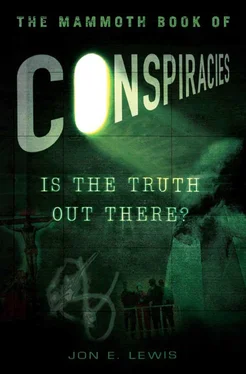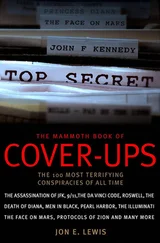“Oh,” they said, “we have one here.”
This conversation lasted a couple of hours, but this is the substance of it. They pulled out this speech. They said, “We will leave it here with you to read over, and you see if you can get these fellows to come.”
I said, “Listen. These friends of mine that I know around here, even if they wanted to go, could not afford to go. It would cost them a hundred to a hundred and fifty dollars to go out there and stay for 5 days and come back.”
They said, “Well, we will pay that.”
I said, “How can you pay it? You are disabled soldiers. How do you get the money to do that?”
“Oh, we have friends. We will get the money.”
Then I began to smell a rat for fair. I said, “I do not believe you have got this money.”
It was either then or the next time, or one of the times, they hauled out a bank-deposit book and showed me, I think it was $42,000 in deposits on that occasion, and on another occasion it was $64,000.
The CHAIRMAN: They took out a bank book and showed you what?
General BUTLER. They took out a bank book and showed me deposits of $42,000 on one occasion and $64,000 on another.
The CHAIRMAN. Do you know on what bank that was?
General BUTLER. I do not. They just flipped the pages over. So, I have had some experience as a policeman in Philadelphia. I wanted to get to the bottom of this thing and not scare them off, because I felt then that they had something real. They had so much money and a limousine. Wounded soldiers do not have limousines or that kind of money. They said, “We will pay the bill. Look around and see if you cannot get two or three hundred men and we’ll bring them out there and we will have accommodations for them.”
This was getting along about the first of August, I should say. Well, I did not do anything about it. MacGuire made one other trip to see me, this time by himself, to see how things were getting along, I said that I had been busy and had not had time to get the soldiers together. Then on this occasion I asked him where he got this money. He was by himself when I asked him that. Doyle was not around.
“Where did you get all this money? It cannot be yours.”
He said that it was given to him by nine men, that the biggest contributor had given $9,000 and that the donations ran all the way from $2,500 to $9,000.
I said, “What is the object?”
He said the object was to take care of the rank and file of the soldiers, to get them their bonus and get them properly cared for.
Well, I knew that people who had $9,000 to give away were not in favor of the bonus. That looked fishy right away.
He gave me the names of two men: Colonel Murphy, Grayson M.P. Murphy, for whom he worked, was one. He said, “I work for him. I am in his office.”
I said to him, “How did you happen to be associated with that kind of people if you are for the ordinary soldier and his bonus and his proper care? You know damn well that these bankers are not going to swallow that. There is something in this, Jerry MacGuire, besides what you have told me. I can see that.”
He said, “Well, I am a business man. I have got a wife and family to keep, and they took good care of them, and if you would take my advice, you would be a business man, too.”
I said, “What has Murphy got to do with this?”
“Well,” he said, “don’t you know who he is?”
I said, “Just indirectly. He is a broker in New York. But I do not know any of his connections.”
“Well,” he said, “he is the man who underwrote the formation of the American Legion for $125,000. He underwrote it, paid for the field work of organizing it, and had not gotten all of it back yet.”
“That is the reason he makes the kings, is it? Pie has still got a club over their heads.”
“He is on our side, though. He wants to see the soldiers cared for.”
“Is he responsible, too, for making the Legion a strike breaking outfit?”
“No, no. He does not control anything in the Legion now.”
I said: “You know very well that it is nothing but a strike breaking outfit used by capital for that purpose and that is, the reason they have all those big club-houses and that is the reasons I pulled out from it. They have been using these dumb soldiers to break strikes.
He said: “Murphy hasn’t anything to do with that. He is a very fine fellow.”
I said, “I do not doubt that, but there is some reason for him putting $125,000 into this.”
Well, that was the end of that conversation. I think it was then that he showed me the deposit of $64,000.
The CHAIRMAN. MacGuire had the money?
General BUTLER. MacGuire had the bank book. He did not have any money yet. No money had appeared yet. There was nothing but a bank book showing deposits. It was in his name.
The CHAIRMAN. In his name?
General BUTLER. Yes.
The CHAIRMAN. Not in Doyle’s name?
General BUTLER. No. Doyle had faded out of the picture and his name was never mentioned again and has never been mentioned since I do not know but what Doyle just rode along with him.
The next time I saw him was about the 1st of September, in a hotel in Newark. I went over to the convention of the Twenty-ninth Division. Sunday morning he walked into my room and he asked me if I was getting ready now to take these men out to Chicago, that the convention was pretty close. I said, “No; I am not going to Chicago.”
“Why not?”
I said, “You people are bluffing. You have not got any money.” Whereupon he took out a big wallet; out of his hip pocket, and a great, big mass of thousand dollar bills and threw them out on the bed.
I said, “What’s all this?”
He says, “This is for you, for expenses. You will need some money to pay them.”
“How much money have you got there?”
He said, “$18,000.”
“Where did you get those thousand dollar bills?”
“Oh,” he said, “last night some contributions were made. I just have not had a chance to deposit them, so I brought them along with me.”
I said, “Don’t you try to give me any thousand dollar bills. Remember, I was a cop once. Every one of the numbers on these bills has been taken. I know you people and what you are trying to do. You are just trying to get me by the neck. If I try to cash one of those thousand dollar bills, you would have me by the neck.”
“Oh,” he said, “we can change them into smaller denominations.”
I said, “You put that money away before somebody walks in here and sees that money around, because I do not want to be tied up with it at all. I told you distinctly I am not going to take these men to Chicago.”
“Well, are you going yourself?”
I said, “Oh, I do not know. But I know one thing. Somebody is using you. You are a wounded man. You are a bluejacket. You have got a silver plate in your head. I looked you up. You were wounded. You are being used by somebody, and I want to know the fellows who are using you. I am not going to talk to you any more. You are only an agent. I want some of the principals.”
He said, “Well, I will send one of them over to see you.” I said, “Who?” He said, “I will send Mr. Clark.”
“Who is Mr. Clark?”
“Well, he is one of our people. He put up some money.”
“Who is he?”
“Well, his name is R. S. Clark. He is a banker. He used to be in the Army.”
“How old a man is he?” He told me.
“Would it be possible that he was a second lieutenant in the Ninth Infantry in China during the Boxer campaign?”
He said, “That is the fellow.”
He was known as the “millionaire lieutenant” and was sort of batty, sort of queer, did all sorts of extravagant things. He used to go exploring around China and wrote a book on it, on explorations. He was never taken seriously by anybody. But he had a lot of money. An aunt and an uncle died and left him $10,000,000. That was the story at the time. So he said, “I will send him over to see you.” I said, “All right, you send him over.”
Читать дальше











